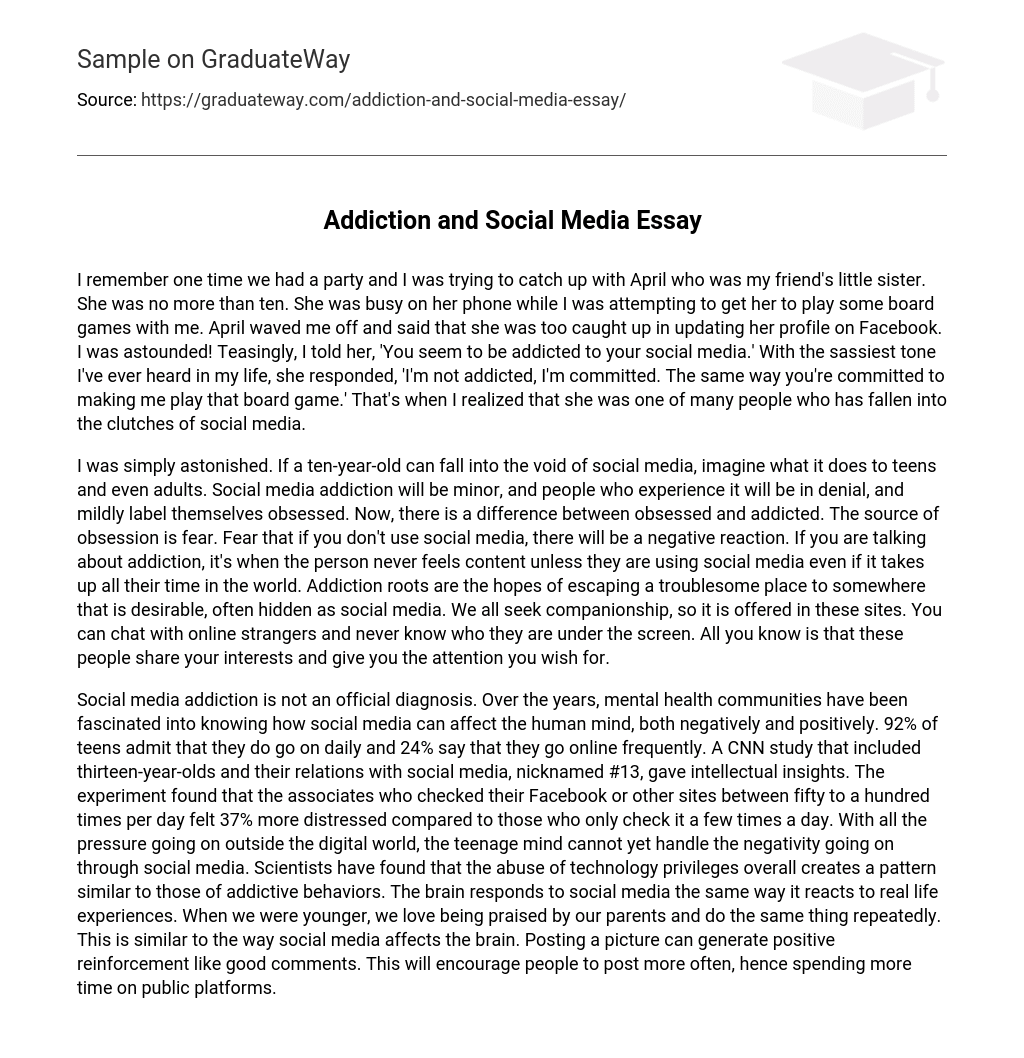I remember one time we had a party and I was trying to catch up with April who was my friend’s little sister. She was no more than ten. She was busy on her phone while I was attempting to get her to play some board games with me. April waved me off and said that she was too caught up in updating her profile on Facebook. I was astounded! Teasingly, I told her, ‘You seem to be addicted to your social media.’ With the sassiest tone I’ve ever heard in my life, she responded, ‘I’m not addicted, I’m committed. The same way you’re committed to making me play that board game.’ That’s when I realized that she was one of many people who has fallen into the clutches of social media.
I was simply astonished. If a ten-year-old can fall into the void of social media, imagine what it does to teens and even adults. Social media addiction will be minor, and people who experience it will be in denial, and mildly label themselves obsessed. Now, there is a difference between obsessed and addicted. The source of obsession is fear. Fear that if you don’t use social media, there will be a negative reaction. If you are talking about addiction, it’s when the person never feels content unless they are using social media even if it takes up all their time in the world. Addiction roots are the hopes of escaping a troublesome place to somewhere that is desirable, often hidden as social media. We all seek companionship, so it is offered in these sites. You can chat with online strangers and never know who they are under the screen. All you know is that these people share your interests and give you the attention you wish for.
Social media addiction is not an official diagnosis. Over the years, mental health communities have been fascinated into knowing how social media can affect the human mind, both negatively and positively. 92% of teens admit that they do go on daily and 24% say that they go online frequently. A CNN study that included thirteen-year-olds and their relations with social media, nicknamed #13, gave intellectual insights. The experiment found that the associates who checked their Facebook or other sites between fifty to a hundred times per day felt 37% more distressed compared to those who only check it a few times a day. With all the pressure going on outside the digital world, the teenage mind cannot yet handle the negativity going on through social media. Scientists have found that the abuse of technology privileges overall creates a pattern similar to those of addictive behaviors. The brain responds to social media the same way it reacts to real life experiences. When we were younger, we love being praised by our parents and do the same thing repeatedly. This is similar to the way social media affects the brain. Posting a picture can generate positive reinforcement like good comments. This will encourage people to post more often, hence spending more time on public platforms.





